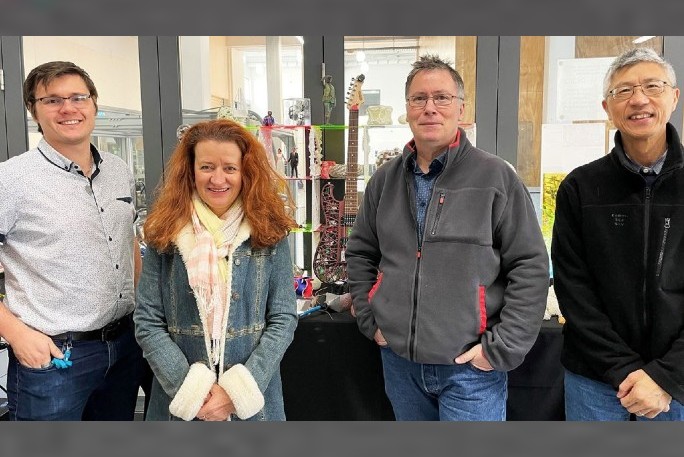University of Auckland research into how companies can use 3D printing properly, to add value and improve lives, has won a leading global award against competition from the US, UK and Europe.
The researchers, from the Creative Design and Additive Manufacturing Lab based in the Faculty of Engineering, won the Academic Research Team category of the 2021 3D Printing Industry Awards.
'This is a huge booster for the whole team,” says CDAM Lab team lead Professor Olaf Diegel, from the Department of Mechanical Engineering.
'It demonstrates that our research is being recognised and appreciated by the 3D printing community from around the world.”
The awards are the largest in the additive manufacturing sector; winners are decided by public vote and this year more than 140,000 votes were cast across the award categories.
'The voters are real users and companies that use 3D printing to make our lives better. Their support is a great indicator that the work we are doing is the right work we should be doing,” says Professor Diegel.
There were ten team nominations in the research team category of the awards including Harvard University's Lewis Lab, Aston University's Meso-brain project (UK), the Manufacturing Technology Center's Digital Reconfigurable Additive Manufacturing facilities for UK aerospace and Northeastern University's DAPS lab in the US.
The focus of the research that won the award for the CDAM Lab team is on helping companies adopt 3D printing (or additive manufacturing as it is also known) for the right applications and with the right design.
'If not used properly, 3D printing becomes a slow and expensive way of manufacturing. It must add value that is high enough to overcome significant costs. And adding that value through good design practices is exactly the area we are most specialised in,” says Professor Diegel.
He predicts a future where 3D printing is used to automate many of the design processes behind the technologies.
'This will help users who may only know how to design for conventional manufacturing to quickly adopt the whole range of technologies and add true value to what they do.
'As this level of automation increases, we will see more and more companies adopting the technologies for real production. In fact, it could get to the point where companies who do not actively adopt and understand all advanced manufacturing technologies, including 3D printing, become disadvantaged."



0 comments
Leave a Comment
You must be logged in to make a comment.